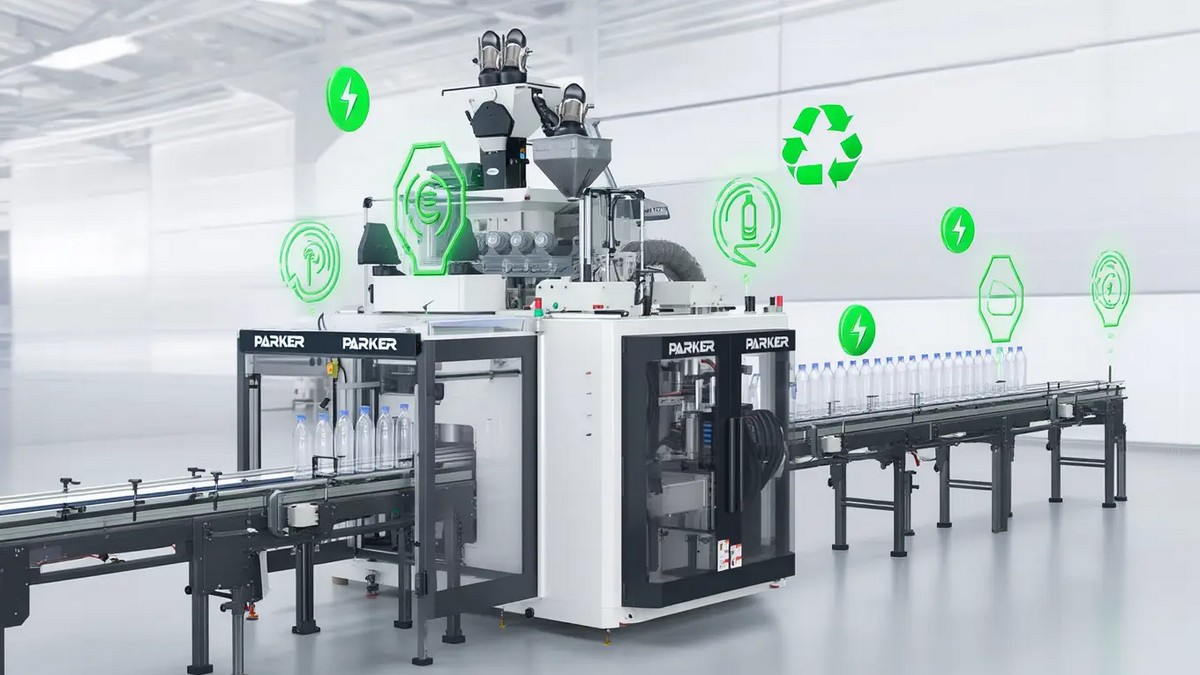In recent years, Turkey has become a highly anticipated newly industrialized country with its brilliant GDP growth rate. It has also become Taiwan's third-largest export market for machine tools for many years.
Turkish machine tool market
In recent years, Turkey has become the third-largest export market for my country's machine tools, with double-digit growth every year. The revenue of some machine tool factories has risen to 20% of the Turkish market. The Turkey Machine Tool Show in October every year has become the focus of Taiwanese machine tool industry exhibitors, especially cutting machines. Half of the exhibition hall is from Taiwanese manufacturers.
The use of machinery and equipment in Turkey is becoming more and more popular. In recent years, concepts such as automation and industry 4.0 have also been added to meet the needs of various types of factories. The industrial machinery and equipment made in Taiwan are diverse, high-quality and low-priced, and are deeply loved by Turkey industry players.
The Machinery Marketing Alliance was launched in Ankara, Turkey to help Taiwanese companies expand sales.
To help Taiwan's machinery industry expand its sales to Turkey, the International Trade Bureau of the Ministry of Economic Affairs launched a machinery marketing alliance in Ankara, Turkey. Turkey is the third-largest exporter of Taiwan's machine tools; Taiwan is the largest importer of Turkish integrated processing machines. In 2015, the bilateral trade volume between Taiwan and Turkey reached US$1.69 billion, of which machinery products accounted for 25% of Taiwan’s exports to Turkey. This clearly shows the importance of machinery industry trade to the economic and trade relations between Taiwan and Turkey.
To deepen the after-sales service of Taiwan's machinery products and increase the loyalty of Turkey manufacturers to Taiwan's machinery products under the global economic downturn and Turkey's current political and economic environment, the machinery marketing alliance was launched in Ankara, in particular, to expand sales and consolidate the economic and trade between the two countries The market not only allows Turkey buyers to have an in-depth understanding of Taiwan's high-quality machinery products, but also allows Taiwanese manufacturers to provide faster and in-place services to the needs of Turkey buyers, and further promote the growth of bilateral trade. The Taiwan government has selected smart machinery as its key development industry. Combined with the development of the Internet of Things, Taiwan's machinery industry will become more competitive. Also, the Machinery Marketing Alliance is like connecting the Yavuz Sultan Selim Bridge, the third bridge between Europe and Asia. It is hoped that Turkish and Taiwanese machinery companies can regularly deepen exchanges and strengthen cooperation. Turkey machinery manufacturers all trust that Taiwan's manufacturing machinery is of good quality and precision, and is extremely competitive in the Turkey market. It is hoped that the machinery manufacturers of both sides will have closer cooperation. The Turkey Machinery Manufacturers Association stated that the coup will not affect the purchase needs of Turkey companies in Taiwan. Taiwan companies are welcome to go to Turkey to develop sales, and hope to further understand Taiwan's smart machinery industry policies and cooperate, and hope to promote the development of the smart machinery industry in the two countries. According to customs statistics, Turkey was Taiwan’s 23rd largest export market in 2015 and Taiwan’s third-largest trading partner in Central and Eastern Europe. Its advantageous geographical location is a bridgehead to advance the markets of Europe, the Middle East, Central Asia, and North Africa, and it is worthy of the Taiwanese machinery industry as a base for marketing in Central Asia and the Middle East.
Taiwan's machine tool exports to Turkey
The export value of Taiwan's machine tools in the first half of the year decreased by more than 30%, while exports to Turkey bucked the trend and grew by nearly 120%
According to statistics from the Taiwan Machine Tool and Components Industry Association, in June, Taiwan's machine tool exports amounted to approximately US$190 million, a monthly growth of 4.1% and a year-on-year decline of 33.8%. In the first half of the year, the cumulative export value of machine tools was 1.111 billion USD, a year-on-year decline of 30.8%. The top three export values were China, the United States, and Turkey, of which Turkey’s annual growth rate was nearly 120%.
The guild pointed out that due to the continuous spread of The Covid-19, global demand in automotive and aviation-related fields has drastically reduced, and the production rhythm has been continuously adjusted accordingly. These factors also impact the output of machine tools. According to the Nikkei report, eight Japanese auto companies have recently counted global output of 912,000 vehicles in May, down 61.6% from the same month last year, which is the highest drop since 2008; currently, with the relaxation of restrictions on going out in various countries, auto factories around the world are also gradually restarting production, hoping that the auto industry can get out of the bottom, but if market demand continues to be sluggish, the production adjustments of various manufacturers will inevitably become long-term.
According to the current statistics on machine tool orders from the United States, Japan, and Germany, the German machine tool industry’s orders in the first quarter fell by 25% compared with the same period last year, of which domestic orders fell by 22% and foreign orders fell by 27%; US machine tools were exported in April The amount was US$1.097 billion, a decline of 28.2% from the same period last year; Japan’s machine tool orders amounted to 342.9 billion yen in the first May, a 41.2% decline from the same period last year.
In the first half of the year, the top ten countries for Taiwan's machine tool exports were China (including Hong Kong), the United States, Turkey, Russia, Vietnam, India, Thailand, the Netherlands, Japan, and Germany in order of export value. The China mainland (including Hong Kong) market accounted for 34.1% of the overall export market, and the export value was nearly US$379 million, a decrease of 22.1% from the same period last year. The United States ranked second, accounting for 12.8% of the export market, with an export value of nearly US$142 million, a decrease of 31.9% from the same period last year. The third-largest exporter is Turkey, with an export value of approximately 78.71 million USD, a substantial increase of nearly 120% over the same period last year.
Turkey's machine tool market, foreign investors lead the way, Taiwan products have a competitive advantage.
The Turkey machine tool market is currently almost dominated by foreign businessmen. Taiwan, Germany, Japan, Italy and South Korea are the main suppliers. In particular, Taiwan takes the lead in two products of integrated processing machines and metal cutting lathes. Other machine tool products also perform very well. Taiwanese machine tool products have gradually been accepted by the Turkish market and even tend to be as high-quality as Japanese products.
The Turkey government signed a cooperation agreement with an international famous machine tool factory, and manufactured the first machine tool in 1984. Since then, Turkey has successively manufactured various types of machine tools, but the trend has gradually focused on the development of private enterprises. According to the Turkey Finance Agency, from 1997 to 2003, Turkey’s machinery and equipment investment accounted for 51% of the total equipment investment and 12.71% of the GNP. During this period, the machinery industry of both Turkey state-owned enterprises and private enterprises grew. The investment is more scaled. Among them, the investment in machinery and equipment of private enterprises accounted for 9.68% of GNP, and state-owned enterprises accounted for 2.25%.
Imported machine tool products, advanced high-priced machinery accounted for the bulk
However, although Turkey produces steel, the machine tool manufacturing industry is still in the embryonic stage of development. The machine tools assembled by Turkey industry are mostly simple and low-cost metal processing machines, and they are also exported. Most of the imported machine tools are more advanced and advanced. For high-priced ones, for example, the average unit price of forging and die-pressing metal processing machines imported from Italy is US$56,367, and the average unit price of exports to that country is US$1,236. Taking Germany as an example, the average unit price of imports is US$48,524, with an average export unit price of US$9,955.
Turkey's imports of integrated processing machines are almost dominated by products from Taiwan, Japan and Germany. From January to August 2004, imports of integrated processing machines amounted to USD 73.68 million. Imports from Taiwan, Japan and Germany alone accounted for more than 70% of the total imports. The import value of lathes for metal cutting from January to August 2004 was US$71.86 million, and the import market share from Taiwan, Japan and South Korea exceeded 50%. Turkey's imports of forging, die-pressing metal processing machines from January to August 2004 amounted to US$71.54 million. Imports from Italy, Germany and Japan alone accounted for more than 50% of the total imports.
Among the export items, metal processing machines have the largest amount
Although Turkey has exports of integrated processing machines, the amount is not large. Germany has already accounted for 82.16% of the market. The remaining export markets are mainly newly developed markets such as Afghanistan and Lebanon; metal cutting lathes are exported to Lebanon, South Korea, Syria, Istanbul Leather Free Trade Zone, etc.; metal processing machines for forging and stamping are exported to Bursa Free Trade Zone, Spain, Germany, Italy, etc.
Distribution channels mainly through agents/distributors
In addition to large enterprises, Turkey machine tools are generally imported through agents/distributors. Although large enterprises usually import them on their own, they also entrust traders to search for market sources when there are large projects. Most of the agents/distributors operate on behalf of multiple brands and provide maintenance services, while internationally renowned brands usually have their after-sales service bases and distribution systems in Turkey. In the distribution system of Turkey machine tools, importers and distributors are usually integrated. For high-priced machine tools, agents/distributors place orders with foreign suppliers after receiving orders; the higher the price, The more complex the machine tool, the shorter the distribution channel. Some small and medium-sized enterprises in Turkey believe that middlemen are exploiting profits and are also trying to import themselves.
Product quality/price Taiwan has a competitive advantage
The agents/distributors of Taiwan machinery manufacturers in Turkey are mostly commission agents in the trading relationship, that is, the agents import in their name and issue a letter of credit, or import in the name of the customer due to the tax rate and the government incentive investment regulations And issue a letter of credit. It is difficult for machinery manufacturers to buy out agents with stocks, because the unit price of machinery is high, and agents can't backlog capital costs. Turkish agents usually require exclusive marketing rights. Foreign suppliers must be able to provide technical training, product-related catalogs and videotapes or CDs, and visit customers regularly.
Taiwan’s product quality and price have a competitive advantage in the market. During the market depression, Taiwan’s machinery prices have become a product favored by local industry players. When the market is gradually warming up, the industry must consider mechanical performance. Taiwan products need to compete with machinery from Germany, Italy and other countries. To reduce production costs, Italian manufacturers took advantage of the low labor and land costs of Eastern European countries to transfer production bases to local areas, reducing labor and transportation investment costs, and improving product competitiveness. Although the quality and price of Taiwan’s products are competitive, how Taiwanese companies maintain their price competitiveness is still an extremely important issue. Also, Turkey importers said that the biggest problem facing Taiwanese products is other small importers or users directly purchase the same products from Taiwanese manufacturers, causing market saturation and intensifying competition between Taiwan products in price cuts.
Big demand for large-scale high-unit-price machines
Analyzing the import statistics of comprehensive processing machines from the Turkey Statistics Bureau, the unit price of imported machines in 2004 has increased. For example, the unit price of imported machines from Taiwan in 2003 was US$4,465, and the unit price in 2004 (January-August) increased sharply to 50,000 importers from Germany increased from US$48,000 to US$97,000, and the unit price of imports from the United Kingdom increased from US$56,000 to US$97,000. The Turkey market's demand for integrated processing machines is moving towards large-scale, more complex machines with higher unit prices.
As the machine types become larger and more complex, and the unit prices increase relatively, Turkey machinery import manufacturers expect foreign exporters to provide financial support, such as forward letters of credit, installment payments, etc., and whether Taiwan companies can provide financial support, and the degree of support depends on the financing owned by the Taiwan industry and the agents and the conditions signed.
Preparations for entering the Turkish market
Applying for the EU CE mark is a necessary condition for machinery sales in Turkey
The Turkey government announced in April 2004 that imports of machinery and electrical equipment must be equipped with the EU CE mark. Turkey companies said that some Taiwan companies were unable to expand the Turkey market because they did not have the EU CE mark. Turkey is approaching the EU threshold. Taiwan machine tool manufacturers should apply for the EU CE mark as soon as possible if they want to develop the Turkey market.
Sales through overseas distributors/agents have always been the main way for Taiwan machinery manufacturers to obtain international orders. Based on this consideration, under the guidance of the Bureau of International Trade of the Ministry of Economic Affairs, the Foreign Trade Association launched the "Taiwan Machinery Distribution Channel Promotion Project" in 2004, with all-out efforts facilitate overseas large-scale machinery distributors/agents and large-scale machinery exhibition centers or shipping warehouse operators to purchase in Taiwan, thereby assisting Taiwan machinery companies to expand overseas markets and channels. Taiwan companies can also participate in the Turkey machine tool exhibition or the international machine tool exhibitions held in Germany and Italy, to directly contact local businessmen.
In the international market, because the machine tool industry has mature technology, the common brands in the general market have little difference in quality and performance. The Turkey industry generally has low brand loyalty, so it is for Taiwan businessmen who intend to explore the local market. On the contrary, it is a good opportunity. However, as the machine tool industry is increasingly developing in the direction of high technology, with multiple functions and easy operations, and the relative mechanical structure is becoming more and more complex, it is not easy to obtain experienced technicians when repairs are required, especially the Turkey market demand trend is for the development of large and complex machines, it is even more problematic to find senior technicians in Turkey; small importers cannot provide appropriate manpower and technical support, and end users are even less likely to hire a maintenance person for a machine. Of end users often need to turn to foreign suppliers for help. If Taiwan companies intend to expand the Turkey machine tool market, they must also be able to provide maintenance and after-sales services to increase their competitiveness beyond price. Those who intend to establish a base in Turkey cannot ignore the shortage of local technicians in Turkey.
In addition to the price competitive advantage in Taiwan’s machine tool industry, it is still necessary to strengthen the development of new models, with high-speed, high-precision, composite technology, and high-efficiency machining as the main axis, and the application of IT information technology network connection to meet the Turkey market demand for new product processing.











.jpg)
.jpg)
.jpg)
